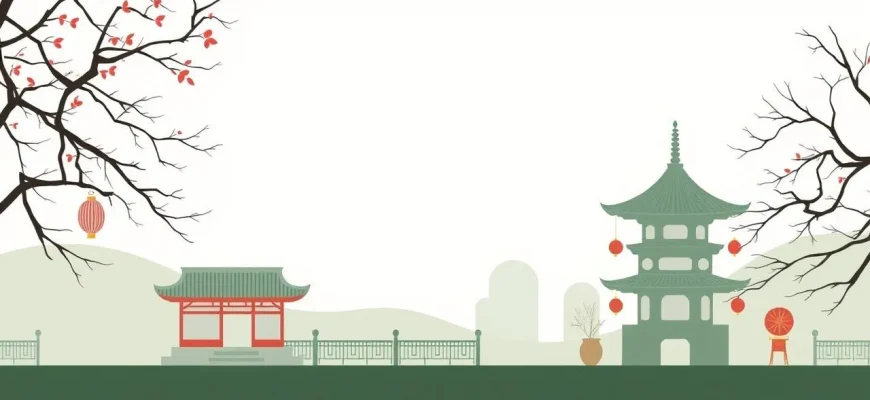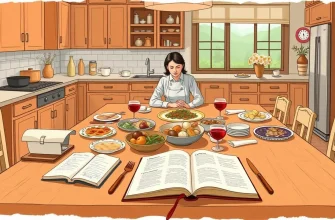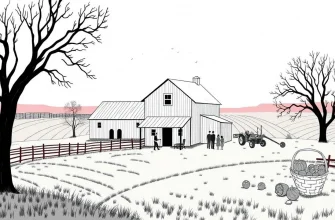Embark on a cinematic journey through the intricate tapestry of Eastern culture with this curated collection of drama films. From the bustling streets of Tokyo to the serene landscapes of rural China, these films delve into themes of tradition, identity, and the clash between modernity and ancient customs. Whether you're a cinephile or simply curious about the East, this selection promises to enlighten and entertain, offering a window into worlds both familiar and exotic.

The Scent of Green Papaya (1993)
Description: Set in Vietnam, this film follows the life of a young servant girl, Mui, over two decades, capturing the essence of Vietnamese culture through its serene visuals and subtle storytelling.
Fact: The film was nominated for an Academy Award for Best Foreign Language Film and was praised for its exquisite cinematography.
 Watch Now
Watch Now 
The Secret Life of Words (2005)
Description: While not directly about Eastern culture, it features a character from Eastern Europe who works in an oil rig off the coast of Ireland, exploring themes of trauma, healing, and cultural identity.
Fact: The film was nominated for the European Film Award for Best Screenwriter.
 Watch Now
Watch Now 
The Lunchbox (2013)
Description: This Indian film tells the story of a mistaken lunchbox delivery that leads to an unexpected friendship, highlighting the nuances of Mumbai's dabbawala system and urban loneliness.
Fact: The film was India's official entry for the Best Foreign Language Film at the 86th Academy Awards.
 Watch Now
Watch Now 
Departures (2008)
Description: This Japanese film explores the life of a cellist who becomes a 'nokanshi' (a person who prepares deceased bodies for burial). It's a poignant look at death, life, and the rituals that bind them, showcasing the beauty in Japanese funeral customs.
Fact: The film won the Academy Award for Best Foreign Language Film in 2009, and it was the first Japanese film to do so since
 Watch Now
Watch Now 
A Separation (2011)
Description: Although not strictly Eastern, this Iranian drama delves into the complexities of family dynamics, cultural expectations, and legal systems in Iran, offering a deep dive into Middle Eastern culture.
Fact: It won the Academy Award for Best Foreign Language Film, making it the first Iranian film to do so.
 30 Days Free
30 Days Free 
Eat Drink Man Woman (1994)
Description: This Taiwanese film centers around a master chef and his three daughters, exploring themes of family, tradition, and the changing dynamics in modern Taiwan through the lens of food.
Fact: The film was nominated for an Academy Award for Best Foreign Language Film and is renowned for its culinary scenes.
 30 Days Free
30 Days Free 
The Handmaiden (2016)
Description: Set in Korea under Japanese colonial rule, this film weaves a tale of deception, love, and cultural clash, showcasing the intricate social structures of the time.
Fact: It was South Korea's submission for the Best Foreign Language Film at the 89th Academy Awards.
 30 Days Free
30 Days Free 
The Housemaid (1960)
Description: This South Korean classic examines the life of a maid in a wealthy household, touching on class issues, sexual politics, and the rigid social structure of the time.
Fact: It was remade in 2010, showcasing its enduring relevance in Korean cinema.
 30 Days Free
30 Days Free 
The King of Masks (1996)
Description: Set in China, this film tells the story of an old street performer who adopts a young boy, only to discover the child is not what he seems, exploring themes of identity and tradition.
Fact: The film was a critical success and won several awards at international film festivals.
 30 Days Free
30 Days Free 
The Road Home (1999)
Description: This Chinese film is a love story set in rural China, where a son returns home to arrange his father's funeral, reflecting on his parents' love story and the simplicity of rural life.
Fact: It was Zhang Yimou's first film to be entirely shot in black and white, emphasizing its nostalgic tone.
 30 Days Free
30 Days Free 








